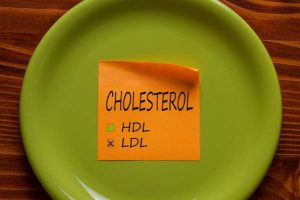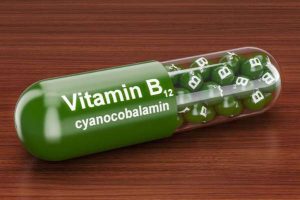Keep Your Vitamins, Omega-3 Levels in Check For a Healthy You

We are sitting in December already. Another year has passed, and its time to analyse and really figure out how much healthier, or worse off 2018 has left us.
Agreed weight gain (or loss), fatigue status, presence of symptoms of an illness or disorder, and the regular blood work (lipid profile, haemoglobin levels, thyroid numbers etc) are dependable indicators to gauge our state of health, but the stakes are high now, so it’s important to look beyond these obvious tell tale signs.
Below is a list of lesser known (but equally important) indicators and counts that could actually tell you your real health status story. So look more closely at these levels too, to decide where you stand as you get ready to welcome a brand New Year.
Vitamin D Levels

Those with low vitamin D3 levels are at significant risk for developing chronic inflammation.
Those with low vitamin D3 levels (below 40 ng/ml) are at significant risk for developing chronic inflammation.
Why is it important?
This vitamin helps spur calcium absorption and bone growth, is essential for good immunity as it helps make white blood cells (WBC), cuts inflammation in the body (and thus inflammatory disorders) and boosts cognitive (brain) function. Its deficiency often leads to weight gain too.
As food sources are few (salmon, sardines and egg yolk), best way to get it is to get enough (15-20 minutes exposure for light skin, 25-30 min for medium skin and 40-45 minutes for dark skin) exposure to sun daily. If the counts are really low then supplementation is a good idea.
Omega 6: Omega 3 Ratio

The ideal ratio is somewhere between 3:1, and possibly as low as 1:1 (omega 6: omega3).
There is no test to find this out, but the ideal ratio is somewhere between 3:1, and possibly as low as 1:1 (omega 6: omega3) but possibly today the ratio stands around 15:1, that is we are consuming way too much of omega 6 which is extremely unhealthy.
Why is it important?
While we need both omega-3s and omega-6s, an imbalance between them can lead to inflammation in the body (bad for our health). The average person has significantly more omega 6 fats than omega 3 fats. The increased omega 6 stimulate the release of pro-inflammatory mediating prostaglandin molecules. This is a key factor in the development of chronic inflammation and auto-immunity.
Excess usage of vegetable oils and processed foods (like chips, tortillas etc) that we consume are to be blamed for this imbalance.
These must be balanced with enough consumption of omega 3, found in fatty fish (salmon, mackerel, tuna, surmayi, singhara, hilsa, rohu), walnuts, flax-seeds (kalsi seeds), and greens like methi and mustard leaves. Also focus on eating anti-inflammatory healthy fats (oily fish (salmon, mackerel, sardines), olive oil, coconut oil, nuts and seeds) instead of inflammatory fats like omega-6 rich oils, like corn, soy and safflower oils.
Triglycerides: HDL Cholesterol Ratio

Keep your triglycerides/HDL less than 3.
Keep your triglycerides/HDL less than 3. Triglycerides are a type of fat (lipid) found in your blood and HDL is the good end of cholesterol.
Why is it important?
When this ratio is high it shows that you have a tendency to develop insulin resistance. This lipid abnormality tends to precede the insulin resistance by 10-15 years – so one can actually put a stop to it right away by correcting this imbalanced ratio.
Not many people know that high triglycerides are predominantly carbohydrate (intake) driven, so take a hard look at just how much of refined carbs you are eating in a day, and check the excess. It’ll help bring the ratio down and cut the risk for developing pre- diabetes and thus diabetes too.
Vitamin B-12 Levels

Vitamin B-12 helps guard against anaemia.
Levels of vitamin B-12 are considered low if they are below 200 ng/mL.
Why is it important?
This vitamin, also called cobalamin we must all know much more about, as a lot many of us are deficient in it today. It’s important because it helps guard against anaemia, prevent fatigue and weakness out and keep our nervous system working fine. Its deficiency surfaces as excruciating pain, intense fatigue, rapid heartbeat, brain fog, forgetfulness, disorientation, and sometimes even blurry vision.
Most sources of B-12 are non-vegetarian foods (dairy products, eggs, fish, meat, and poultry), so non-vegetarians usually don’t face this deficiency. Vegetarians can get it from tofu and mushrooms, or opt for supplemental.
Courtesy by : Daily Hunt



